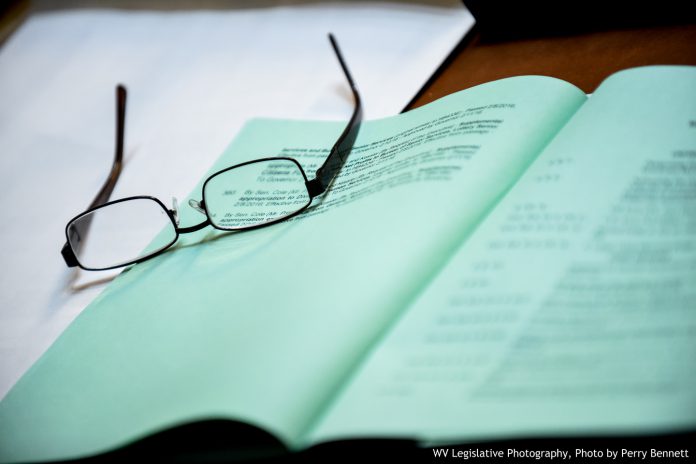As the close of the Regular 60-day Session in Charleston draws near, some West Virginians may not be fully aware that much of the hard work put forth by lawmakers may not result in the passage of legislation until the closing days of the Session.
Lawmakers and their staff must work at a frenzied pace during the 60-day Regular Session in order to develop legislation that is palatable to the greatest possible majority. Due to the checks and balances required for an efficient state government to operate, an average of only 14.3 percent of bills introduced every session eventually become law. In 1988, only seven percent of the bills introduced were passed into law. In 1995, 17.8 percent of the bills introduced eventually passed into law. This was the highest percentage of bills passed in the past 15 years. As of Wednesday, 24 bills have passed both houses but as in recent years, the number of bills passed will increase exponentially in the last few days of the Session. Between both houses, a total of 1,833 bills have been introduced this Session. Over the last 15 years, an average of 1,690 bills have been introduced each Regular Legislative Session. With 143 more bills introduced than the average Session, lawmakers have had a heavier workload to consider this year.
The Regular Session of the 76th Legislature has required lawmakers to deal with challenges not encountered in recent years. Complicated issues, which are vital to West Virginia’s future prosperity, include but are not limited to: Medical Malpractice Liability Insurance, the unfunded liability of Workers’ Compensation and the State Budget. The Legislature is continuing to work on all bills up for consideration. The issues of Medical Malpractice and Worker’s Compensation have
already passed both bodies and have been sent to Conference Committee for consideration by representatives of both the House and Senate. Many issues considered by the Legislature this Session are also made more challenging by the current economic hardships experienced by both the state and nation. Lawmakers have been given charge to develop innovative new solutions to many difficult problems because of these obstacles. As West Virginia works with complicated issues, surrounding states will look to see how the Legislature confronts issues they are facing.
Due to the complexity and importance of these issues, nearly every citizen has concerns he or she wishes to express to their elected representatives. Because of technological advancements in communication, it is easier for more West Virginians to communicate with members of the Legislature than ever before. Citizens have instantaneous access to the legislative process and the status of proposed legislation through the use of the Internet.
Because of this improved communication between elected officials and constituents, lawmakers are presented with more options by those they represent. As legislators receive more input on every bill up for consideration, they require more time to deliberate on these issues, collaborate with colleagues and develop legislation to benefit the best interest of their constituents and the state. This deliberation is done through the committee and amendment processes. These processes are designed to give every member of the Legislature an opportunity to appropriately represent their constituents on each bill they encounter.

